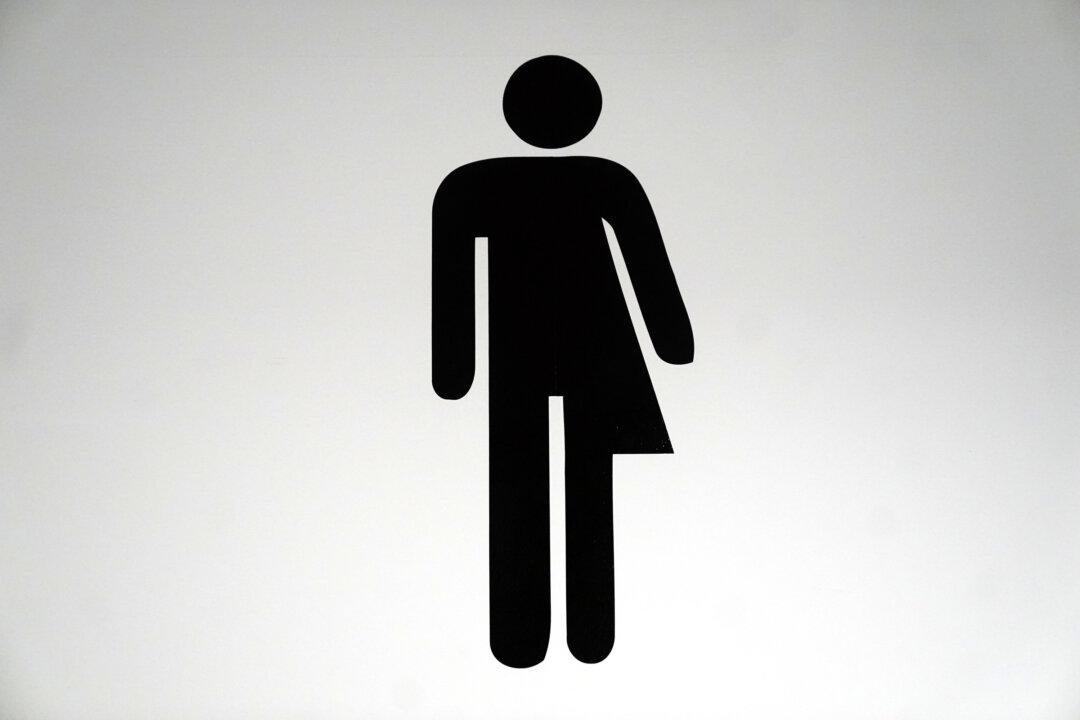Almost 70 percent of those counted as “transgender” in the 2021 census for England and Wales could have been miscategorised, according to research published on April 19.
Author Michael Biggs, associate professor in sociology at the University of Oxford, said “spurious” results from the census were “produced by a flawed question, which originated with a transgender campaigning organization.”
He also suggested the ONS has overlooked how non-trans-identifying people would have been confused by the questions, resulting in “false positives” that may have seriously inflated the size of the trans-identifying population.
In 2021, the ONS, for the first time, included a question on gender identity in its census questionnaire for England and Wales. This is in addition to a legacy question “What is your sex?”
People aged 16 or over were asked whether or not the gender they identified with was the same as their sex registered at birth. Those who answered “no” were then invited to write down their gender identities in the boxes below.
Some 0.5 percent (262,000) of the respondents were counted as transgender for answering “no” to the question, but anomalies in details of the data has raised accuracy concerns.
According to the ONS, 118,000, or 45 percent of the supposedly transgender population did not specify what their gender identities were.
Mr. Biggs said the responses from this cohort should have been considered invalid.
While some may have felt “they had used the sex question to indicate their identity as male or female and saw no need to repeat it,” he wrote, “this category could erroneously include many non-transgender respondents who were confused by the question.”
ONS analysis also showed that around two-thirds of those who said they were trans women also said they were of “female” sex, and a similar proportion of “trans men” said they were male, contradicting the definition of trans men and trans women.
These two cohorts included 64,000 people. Mr. Biggs argued that their responses should have been exclude as well because they were either confused by the gender question or did not put down they natal sex as required.
ONS analysis published last year also said data show Muslims and black people were much more likely to answer no to the gender question, as well as people with no educational qualification or less proficiency in English.
The ONS concluded that some respondents may have misunderstood the questions, but it couldn’t “say with certainty” whether the estimates were more likely to be an overestimate or an underestimate.
Concern for Non-Trans Population ‘Absent’
Analysing the ONS’s year’s long process of designing the gender identification question, Mr. Biggs suggested the agency has ignored how most of the population would interpret the question.“Throughout the years of question development by ONS, the only documented concern was how the question could be interpreted by trans people. That is why the question needed to capture even ‘people who have fully transitioned to a binary gender and might not still identify as trans,’” he wrote.
“Absent from the record, however, was any concern for how the question would be interpreted by non-transgender people beyond the professional-managerial class, especially those with limited English proficiency.”
Mr. Biggs said professional-managerial class, including ONS staff, is well-versed in this discourse thanks to training programmes provided by LGBT organisations such as Stonewell.
The failure to have due consideration for the rest of the population, he argued, could have led to “false positives” that “pose a greater threat than false negatives” because it impacts a much large number of people and therefore has a bigger skewing effect on the figure.
Mr. Biggs told the publication at the time that it was “troubling that the ONS has treated scrutiny of its data as a threat to its staff.”
In a statement to The Epoch Times, the ONS said there are “patterns in the data that are consistent with—but do not conclusively demonstrate—that some respondents may not have interpreted the question as intended,” but this “does not necessarily mean they are wrong.”
“Some local authorities may attract trans people due to established communities and unexpected patterns can result from correlations between variables, such as younger age profiles in some ethnic groups.
“We also cannot ignore that some trans people are likely to be among those who chose not to respond to this voluntary question, so it is not possible to quantify any potential under or overestimate among these groups.”
The ONS also said it went through “a rigorous and thoughtful process to develop all questions,” adding that non-trans-identifying people and foreign language speakers were involved in its 2019 Census Rehearsal.
“We have made clear where there is uncertainty in the estimates. Our users have told us that they expect higher uncertainty around census estimates for this topic, particularly as it is a voluntary question and are not solely relying on the census estimates in isolation,” the statement reads.







